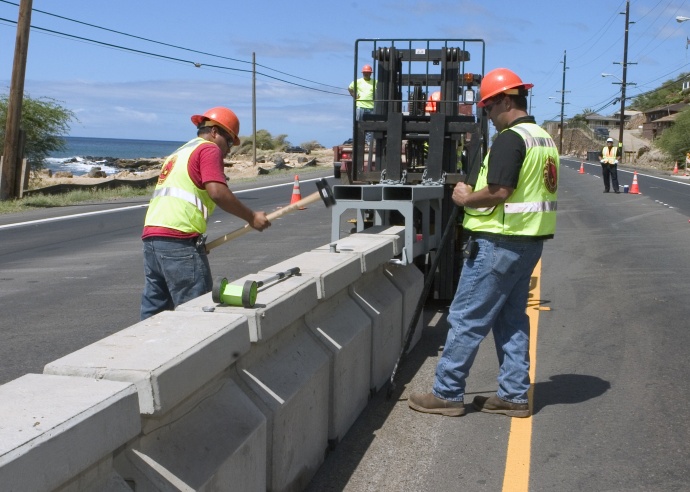Transportation Department Reduces Federal Pipeline to 16 Year Low

Department of Transportation, courtesy photo State of Hawai’i.
The Hawaiʻi Department of Transportation has reduced its unexpended federal obligation balance, also known as the “Pipeline” by more than $108 million, department officials announced today.
This is the second year in a row HDOT has experienced a reduction of more than $100 million. It also represents the lowest amount in 16 years.
As of the end of Fiscal Year 2016 Hawaii’s Pipeline balance is $548 million with 444 open projects.
“This is a significant accomplishment and I greatly appreciate your leadership. I commend you and your staff on the continued progress,” wrote Ralph Rizzo, Federal Highway Administration, Division Administrator in a letter addressed to HDOT Director Ford Fuchigami.
“The progress in reducing the federal Pipeline amount shows our commitment to starting and finishing projects in a timely manner. This has a direct impact on solutions to help relieve traffic. I am confident we will continue to improve the highways system as efficiently as possible,” said Gov. David Ige.
The Federal Highway Administration acknowledged HDOT is a year ahead of schedule in reaching the agreed upon goal of $450 million by the end of FY 2018. It is important to note the Pipeline amount should never reach zero since HDOT receives new federal funding each year and because funds are not fully reimbursed until the work is complete.
“We thank the FHWA for its support in reducing the Pipeline amount,” said Ford Fuchigami, Hawaii Department of Transportation Director. “The Ige administration is proud to have reduced the Pipeline to the lowest amount since Fiscal Year 2000.”
State officials say the reduction was achieved in part because HDOT was able to close 87 projects in FY 2016, in addition to 49 the previous year. HDOT is also working to issue the notice to proceed on projects within 180 days, which is quicker than in the past.
The Federal-aid Highway Program works on a reimbursement basis, similar to other grant programs. Therefore, when HDOT asks the federal government for approval to start a project with federal money, FHWA sets aside or “obligates” the full amount of money needed for the project.
HDOT cannot bill the federal government until it has incurred eligible costs. For instance, if there is a 3-year project that is going to cost $3 million, HDOT might only expend $500,000 the first year, $2 million the second, and $500,000 in the third year. On this single project, HDOT would carry an unexpended balance every year, albeit decreasing, until the project is completed and the state has been fully reimbursed.
Because there are many projects that are started and completed at various times, department officials say HDOT should always have some balance of obligated but unexpended federal funding. In Hawaiʻi’s case, the agreed upon amount is $450 million.
The Pipeline, or unexpended federal obligation balance, is the difference between what is obligated for all projects and what HDOT has expended and been reimbursed for by the federal government.
Every state carries an unexpended balance because of the reimbursement nature of the program and the time it takes to deliver projects.









